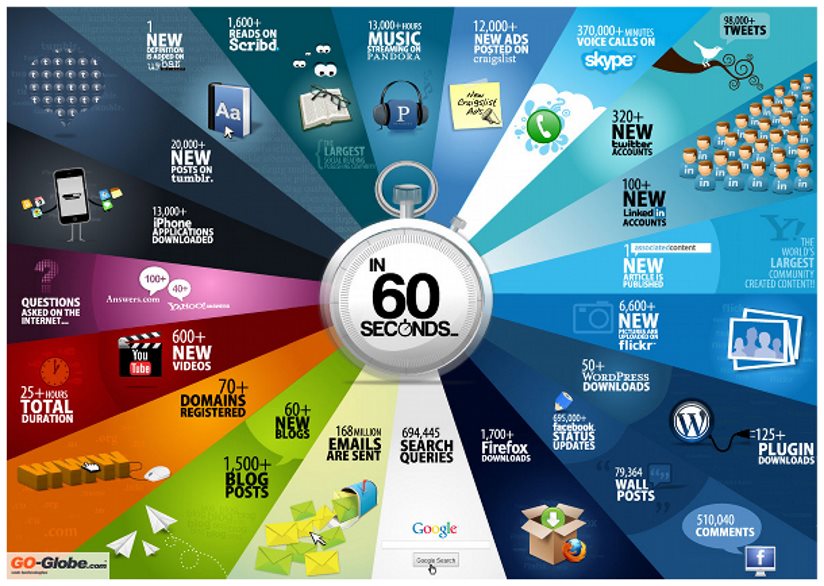
As Baraji Srinivasan of the acclaimed startup 21 Inc said, what Bitcoin will do to transfer value is:The Internet made for communications, will make itprogrammable». Indeed, Bitcoin promises to revolutionize the way value is transferred online, and when you consider that the cryptocurrency component can be integrated into almost all interactions online, this makes a real breakthrough possible.
</p>Technology has made it incredibly easy to create andcontent distribution. Now anyone can compose quality music, shoot videos or write articles right from their room and publish them online. The problem is that those who manage to make money from it make up a very small proportion of the total number of content creators. Today, the main way to make money from content is through advertising, where consumers indirectly pay for the content through advertisers. The economic interactions between content creators and their clients involve intermediaries and are inefficient.
Times when you could expect everything to beThe Internet will be free, over. People spend a lot of money on digital products because it is easy and convenient. For example, Apple Corporation received $4.6 billion in revenue from iTunes in the fourth quarter of 2014, and even conservative publications such as the New York Times or Wall Street Journal began to block free access to their articles. Successful crowdfunding campaigns have shown that pooling small contributions from many participants can be a source of funding for promising projects.
If the market can clearly demonstrate whichcontent is in high demand, more of this content will be created, but we don't yet have an easy and convenient way for a user to rate the content, be it music, articles or videos. Social media uses likes, hearts, stars, etc. for a similar purpose, but these are also only a very indirect form of conveying value. Of course, likes draw attention to the content, but no monetary value is transferred.
Likes have another serious drawback:they have only two states, and therefore cannot express exactly how much someone values some content. This makes social media communication less effective than it could be.
Perhaps cryptocurrency payments will make a difference for the better.
Wouldn't it be great if instead of a button«like» Did you see a Bitcoin donation button below the content? You could pay any amount for the content, showing how much you liked it and at the same time supporting the creator, which would encourage him to create more similar content. You can imagine services that allow you to find out who paid for what and how much. Such services could be integrated with sites like Soundcloud, Flickr and other content networks. The Changetip and Coinwidget projects are already implementing similar ideas, but to popularize them, they need to be taken up by a larger player in the social networking market.
It seems to me that likes are just an intermediatestage of development of technologies for expressing value on the Internet. Money is much better for this. Let's say it would be good practice to pay a couple of cents for a funny meme, 10 cents for a video you like, or a dollar for an article that changed your views. If you created a video that got 200 thousand views, and every tenth viewer gave you 10 cents, you would get 2 thousand dollars for the video! For example, I listen to a lot of music and read a lot of articles on the Internet. I probably read one or two good articles a day and a couple of mediocre ones. I wouldn't have a problem paying 50 cents for a good article if it meant I'd get more on the same topic. I listen to a lot of music on Soundcloud, but if I download a song from Bandcamp, I often voluntarily pay more than what is offered to support the musicians.
Like Balaji Srinivasan, I believe that the influenceBitcoin's impact on economic relations is comparable to what the Internet previously did for communications, and it not only democratized, but also fragmented communications. Instead of communicating with an isolated small group through letters, telephone and face-to-face meetings, today we interact with a much larger audience using much more effective means. Instead of writing one email a day and waiting a week for a response, we can now communicate with tens or hundreds of other people every day through email, chat, and even through signals like likes and shares on social networks.
I think that value transfer will develop inin a similar direction. It's conceivable that instead of purchasing two or three albums per month on Amazon, users would split the same amount among hundreds of content creators. Platforms like Soundcloud can take a certain percentage, partially solving problems with monetization.
Micropayments were very impractical beforeBitcoin because the fees for such transactions were unacceptably high. It seems to me that micropayments are an important part of Bitcoin's revolutionary potential. Bitcoin is gradually penetrating the masses, but it still has not provided convincing and obvious proof of its unique benefits to everyone - it still does not have a "killer" application. Perhaps such an application will be micropayments for content.
Web technologies 2.0 have built up a social layer on top of basic Internet services, and it is possible that this time we will be able to add a value transfer layer to the network. This could create the next platform for disruptive innovation. New companies will be able to replace existing ones by copying their services but adding a layer of value to them.
Digital goods differ from physical goods in thatyou can reproduce and distribute them for almost free. When Napster came along, revolutionizing the distribution of music, the music industry was too cumbersome to create a working payment system for it. Today, streaming has become one of the main ways to get music, but the system is still flawed, so beginners and not-so-popular artists use Spotify for marketing due to lack of funds.
We still haven't figured out a wayallowing the average person to make money by producing digital goods. I think part of the problem is that we think of digital goods as analogous to physical ones, but creating new technologies for transferring value requires completely different approaches that leverage the power of new technologies like Bitcoin.
Perhaps for this we should move from directpayments to a more donation-based model, and combining payment and like features would be a step in that direction. Buying «merch» musical groups have always been not only support for artists, but also a way of self-expression. Registering donations to artists on the blockchain could become something similar. The implementation of the value transfer layer will allow us to create giant decentralized content markets, thanks to which artists will receive a living and we will receive truly in-demand relevant content.
Moritz Stellmacher
: zapchain.com




